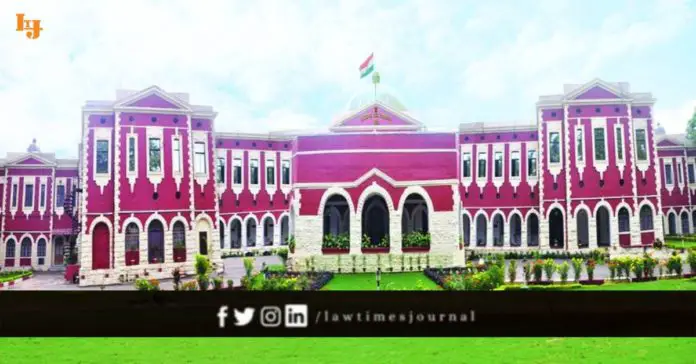
CASE: Ranjeet Kumar Sah & Anr. v. State of Jharkhand & Ors.
CORAM: Hon’ble Justice Sanjay Kumar Dwivedi
On Thursday, the Jharkhand High Court set aside a 2019 advertisement published by the Jharkhand Public Service Commission, retrospectively demanding the reservation of the 10 percent Economically Weaker Group (EWS) by combining the previous vacancies of 2013 and 2015 with those resulting from the implementation of the said reservation in 2019.
Justice Sanjay Kumar Dwivedi observed that “At the time of advertisement of 2013 and 2015, 10% reservation for EWS was not there and by way of clubbing the vacancies, 10% reservation for EWS has been provided in the vacancy of 2013 and 2015, which is against the mandate of the Constitution of India.”
In light of the 103rd Constitutional Amendment Act, 2019, the Court also directed the State of Jharkhand to change the advertisement to ensure that the previous vacancies could be filled within the constitutional mandate.
The Court held that “This Court declares that the retrospective application of 10% EWS quota is against Articles 14 and 16 of the Constitution of India”.
FACTS OF THE CASE
For quashing an advertisement published by the Jharkhand Public Service Commission (JPSC) in 2019 for the appointment to the rank of Assistant Engineer (Civil) by the petitioners approached the High Court for the retrospective applicability of 10 percent reservation to the category of EWS.
According to the said advertisement, combined vacancies for the unreserved category were notified for the conduct of a single selection process along with the vacancies notified for the year 2019 for the earlier advertisements of 2013 and 2015.
It was the case of the petitioners that the memorandum of the Government of India vide office dated 31.01.2019 published its decision to implement 10 percent reservation in civil posts and government services for the EWS group.
The State of Jharkhand then released a resolution on 15.02.2019 providing for an EWS reservation in favour of this, which was made effective on 15.01.2019. The State rules of 2001 were also amended by increasing the reservation ceiling percentage to 60 percent.
Aggrieved by the said 2019 advertising, the petitioners argued that, according to the GOI notification, it could be explained that the impact of its applicability would post facto and not retrospective, and hence the JPSC had replaced its previous 2013 and 2015 advertisements as there was no EWS reservation applicable at that time.
In addition, it was argued that pursuant to the 103rd Constitutional Amendment Act, 2019, Articles 15(6) and 16(5) were inserted in order to give effect to the official gazette of 14 January 2019 laying down special provisions for all categories of people who are economically weaker. Therefore, the decision of the State Government for enhancing the reservation limit from 50% to 60% by giving retrospective applicability to the 103rd Amendment Act, 2019 was against the Constitutional mandate.
Thus, the question of adjudication before the High Court was “Whether EWS reservation can be given effect retrospectively or not?”
OBSERVATION OF THE COURT
The Court started by observing that the EWS reservation, which was clearly stipulated in Clause 11 of the resolution of 15.02.2019, was brought into force by the State Government on 15.01.2019. The 10 percent reservation to the EWS was therefore needed to be made effective by the State of Jharkhand from 15.01.2019.
The bench relied on a multitude of judgments decided by the Constitution Benches of the Supreme Court to recognize the uniqueness of the issue of law concerned. Reliance was made on M. R. Balaji & Ors. v. The State of Mysore & Ors wherein the Court rejected the argument that in the absence of a limitation contained in Article 15(4), no limitation can be prescribed by the Court on the extent of reservation.
The bench also relied on the judgment of Indra Sawhney v. Union of India & Ors wherein the Court by its majority view, accepted the view of M.R Balaji case and held that the extent of the reservation shall not exceed 50% of the appointment of post except in certain extraordinary situation taking together with reservation in favor of Scheduled Caste and Scheduled Tribe category candidates.
While analyzing the judgments on the subject the Court observed the question of law involved in the matter and stated:
“Thus, that reservation cannot be allowed to be made effective with retrospective effect, which is against the mandate of the Constitution of India. The Constitution of India is the fountain of all the Statutes. At the time of advertisement of 2013 and 2015, 10% reservation for EWS was not there and by way of clubbing the vacancies, 10% reservation for EWS has been provided in the vacancy of 2013 and 2015, which is against the mandate of the Constitution of India. The merger of earlier advertisements, which has been made effective retrospectively, is against the constitutional scheme.”
In the above view the bench set aside the impugned advertisement of 2019 and declared the retrospective application of 10% EWS quota as violative of Article 14 and Article 16 of the Constitution.
The bench also directed the State of Jharkhand to modify the advertisement to the extent that 10% quota for EWS shall not be made effective retrospectively for the vacancy of the year 2013 and 2015. The new vacancies shall be advertised separately within 8 weeks.“The advertisement of 2019 shall carry out after modifying the said advertisement afresh in light of the 103rd Amendment of the Constitution, which was made effective w.e.f. 14.01.2019 by way of incorporating Article 16(6) in the Constitution of India” the bench held.








